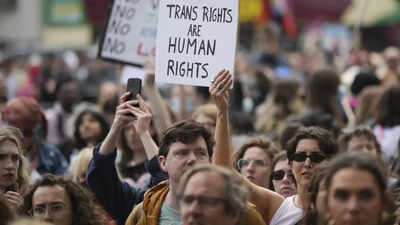Trump Administration Freezes Over $1 Billion in Federal Funding for Cornell and Northwestern Universities

In a significant move that has sent ripples through the academic community, the Trump administration has frozen more than $1 billion in federal funding earmarked for Cornell University and approximately $790 million for Northwestern University. This decision comes amidst an ongoing investigation into allegations of civil rights violations at both prestigious institutions, as announced by the White House.
The funding halt is part of a broader initiative by the Trump administration to leverage government financial support as a tool to ensure compliance with its political objectives, particularly concerning how universities address issues related to antisemitism and the treatment of Jewish students. The White House confirmed the funding suspensions late Tuesday night, though it provided scant details regarding the specific grants that will be impacted.
As this financial uncertainty looms, universities across the nation face mounting challenges in managing their budgets, particularly those reliant on federal grants for essential research projects. For instance, Cornell University disclosed that it received over 75 'stop work' orders from the Defense Department, impacting research deemed critical to American national defense, cybersecurity, and health. However, Cornell's officials noted they had not yet been formally informed about the freezing of $1 billion in grants and are actively seeking clarification from federal authorities.
Similarly, in a communication to the Northwestern community, university president Michael Schill indicated that the institution had not received any notices regarding funding cuts from the federal government, as reported by The Daily Northwestern, the campus newspaper.
This funding freeze comes on the heels of warning letters sent last month by the Department of Education to over 60 universities, including both Cornell and Northwestern. These letters cautioned institutions about potential enforcement actions if they did not adhere to federal mandates aimed at protecting Jewish students on campus, ensuring their access to educational facilities and opportunities remains uninterrupted.
Moreover, the Trump administration has made it clear that it intends to cut federal funding to universities that are perceived to be allowing antisemitism to flourish unchallenged during protests. This situation escalated last year during various campus demonstrations against Israel's military actions in Gaza, where accusations of antisemitic sentiment were leveled against participating studentsclaims that the universities have consistently denied.
Columbia University has already become a focal point in this ongoing battle, facing threats of losing $400 million in federal funding due to accusations of failing to manage antisemitism effectively during protests on its campus. The administration's assertions that Columbia did not adequately address antisemitic incidents during these protests have been challenged by many involved in the demonstrations.
As a condition for the restoration of withheld funds at Columbia and ensuring future grants, the Trump administration has demanded significant changes to the university's policies. While some at Columbia have agreed to these demands in an effort to protect vital research projects and funding, this capitulation has drawn criticism from faculty members and advocates for free speech, who see it as an intrusion into academic independence.



























